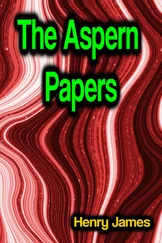Henry James - The American Scene
Здесь есть возможность читать онлайн «Henry James - The American Scene» — ознакомительный отрывок электронной книги совершенно бесплатно, а после прочтения отрывка купить полную версию. В некоторых случаях можно слушать аудио, скачать через торрент в формате fb2 и присутствует краткое содержание. Жанр: unrecognised, на английском языке. Описание произведения, (предисловие) а так же отзывы посетителей доступны на портале библиотеки ЛибКат.
- Название:The American Scene
- Автор:
- Жанр:
- Год:неизвестен
- ISBN:нет данных
- Рейтинг книги:3 / 5. Голосов: 1
-
Избранное:Добавить в избранное
- Отзывы:
-
Ваша оценка:
- 60
- 1
- 2
- 3
- 4
- 5
The American Scene: краткое содержание, описание и аннотация
Предлагаем к чтению аннотацию, описание, краткое содержание или предисловие (зависит от того, что написал сам автор книги «The American Scene»). Если вы не нашли необходимую информацию о книге — напишите в комментариях, мы постараемся отыскать её.
The American Scene — читать онлайн ознакомительный отрывок
Ниже представлен текст книги, разбитый по страницам. Система сохранения места последней прочитанной страницы, позволяет с удобством читать онлайн бесплатно книгу «The American Scene», без необходимости каждый раз заново искать на чём Вы остановились. Поставьте закладку, и сможете в любой момент перейти на страницу, на которой закончили чтение.
Интервал:
Закладка:
You see the pin-cushion in profile, so to speak, on passing between Jersey City and Twenty-Third Street, but you get it broadside on, this loose nosegay of architectural flowers, if you skirt the Battery, well out, and embrace the whole plantation. Then the "American beauty," the rose of interminable stem, becomes the token of the cluster at large—to that degree that, positively, this is all that is wanted for emphasis of your final impression. Such growths, you feel, have confessedly arisen but to be "picked," in time, with a shears; nipped short off, by waiting fate, as soon as ''science," applied to gain, has put upon the table, from far up its sleeve, some more winning card. Crowned not only with no history, but with no credible possibility of time for history, and consecrated by no uses save the commercial at any cost, they are simply the most piercing notes in that concert of the expensively provisional into which your supreme sense of New York resolves itself. They never begin to speak to you, in the manner of the builded majesties of the world as we have heretofore known such—towers or temples or fortresses or palaces—with the authority of things of permanence or even of things of long duration. One story is good only till another is told, and sky-scrapers are the last word of economic ingenuity only till another word be written. This shall be possibly a word of still uglier meaning, but the vocabulary of thrift at any price shows boundless resources, and the consciousness of that truth, the consciousness of the finite, the menaced, the essentially invented state, twinkles ever, to my perception, in the thousand glassy eyes of these giants of the mere market. Such a structure as the comparatively windowless bell-tower of Giotto, in Florence, looks supremely serene in its beauty. You don't feel it to have risen by the breath of an interested passion that, restless beyond all passions, is for ever seeking more pliable forms. Beauty has been the object of its creator's idea, and, having found beauty, it has found the form in which it splendidly rests.
Beauty indeed was the aim of the creator of the spire of Trinity Church, so cruelly overtopped and so barely distinguishable, from your train-bearing barge, as you stand off; in its abject helpless humility; and it may of course be asked how much of this superstition finds voice in the actual shrunken presence of that laudable effort. Where, for the eye, is the felicity of simplified Gothic, of noble pre-eminence, that once made of this highly-pleasing edifice the pride of the town and the feature of Broadway? The answer is, as obviously, that these charming elements are still there, just where they ever were, but that they have been mercilessly deprived of their visibility. It aches and throbs, this smothered visibility, we easily feel, in its caged and dishonoured condition, supported only by the consciousness that the dishonour is no fault of its own. We commune with it, in tenderness and pity, through the encumbered air; our eyes, made, however unwillingly, at home in strange vertiginous upper atmospheres, look down on it as on a poor ineffectual thing, an architectural object addressed, even in its prime aspiration, to the patient pedestrian sense and permitting thereby a relation of intimacy. It was to speak to me audibly enough on two or three other occasions—even through the thick of that frenzy of Broadway just where Broadway receives from Wall Street the fiercest application of the maddening lash; it was to put its tragic case there with irresistible lucidity. "Yes, the wretched figure I am making is as little as you see my fault—it is the fault of the buildings whose very first care is to deprive churches of their visibility. There are but two or three—two or three outward and visible churches—left in New York 'anyway,' as you must have noticed, and even they are hideously threatened: a fact at which no one, indeed, appears to be shocked, from which no one draws the least of the inferences that stick straight out of it, which every one seems in short to take for granted either with remarkable stupidity or with remarkable cynicism." So, at any rate, they may still effectively communicate, ruddy-brown (where not browny-black) old Trinity and any pausing, any attending survivor of the clearer age—and there is yet more of the bitterness of history to be tasted in such a tacit passage, as I shall presently show.
Was it not the bitterness of history, meanwhile, that on that day of circumnavigation, that day of highest intensity of impression, of which I began by speaking, the ancient rotunda of Castle Garden, viewed from just opposite, should have lurked there as a vague nonentity? One had known it from far, far back and with the indelibility of the childish vision—from the time when it was the commodious concert-hall of New York, the firmament of long-extinguished stars; in spite of which extinction there outlives for me the image of the infant phenomenon Adelina Patti, whom (another large-eyed infant) I had been benevolently taken to hear: Adelina Patti, in a fanlike little white frock and "pantalettes" and a hussar-like red jacket, mounted on an armchair, its back supporting her, wheeled to the front of the stage and warbling like a tiny thrush even in the nest. Shabby, shrunken, barely discernible to-day, the ancient rotunda, adjusted to other uses, had afterwards, for many decades, carried on a conspicuous life—and it was the present remoteness, the repudiated barbarism of all this, foreshortened by one's own experience, that dropped the acid into the cup. The sky-scrapers and the league-long bridges, present and to come, marked the point where the age—the age for which Castle Garden could have been, in its day, a "value"—had come out. That in itself was nothing—ages do come out, as a matter of course, so far from where they have gone in. But it had done so, the latter half of the nineteenth century, in one's own more or less immediate presence; the difference, from pole to pole, was so vivid and concrete that no single shade of any one of its aspects was lost. This impact of the whole condensed past at once produced a horrible, hateful sense of personal antiquity.
Yet was it after all that those monsters of the mere market, as I have called them, had more to say, on the question of "effect," than I had at first allowed?—since they are the element that looms largest for me through a particular impression, with remembered parts and pieces melting together rather richly now, of "downtown" seen and felt from the inside. "Felt"—I use that word, I dare say, all presumptuously, for a relation to matters of magnitude and mystery that I could begin neither to measure nor to penetrate, hovering about them only in magnanimous wonder, staring at them as at a world of immovably-closed doors behind which immense "material" lurked, material for the artist, the painter of life, as we say, who shouldn't have begun so early and so fatally to fall away from possible initiations. This sense of a baffled curiosity, an intellectual adventure forever renounced, was surely enough a state of feeling, and indeed in presence of the different half-hours, as memory presents them, at which I gave myself up both to the thrill of Wall Street (by which I mean that of the whole wide edge of the whirlpool), and the too accepted, too irredeemable ignorance, I am at a loss to see what intensity of response was wanting. The imagination might have responded more if there had been a slightly less settled inability to understand what every one, what any one, was really doing; but the picture, as it comes back to me, is, for all this foolish subjective poverty, so crowded with its features that I rejoice, I confess, in not having more of them to handle. No open apprehension, even if it be as open as a public vehicle plying for hire, can carry more than a certain amount of life, of a kind; and there was nothing at play in the outer air, at least, of the scene, during these glimpses, that didn't scramble for admission into mine very much as I had seen the mob seeking entrance to an up-town or a down-town electric car fight for life at one of the apertures. If it had been the final function of the Bay to make one feel one's age, so, assuredly, the mouth of Wall Street proclaimed it, for one's private ear, distinctly enough; the breath of existence being taken, wherever one turned, as that of youth on the run and with the prize of the race in sight, and the new landmarks crushing the old quite as violent children stamp on snails and caterpillars.
Читать дальшеИнтервал:
Закладка:
Похожие книги на «The American Scene»
Представляем Вашему вниманию похожие книги на «The American Scene» списком для выбора. Мы отобрали схожую по названию и смыслу литературу в надежде предоставить читателям больше вариантов отыскать новые, интересные, ещё непрочитанные произведения.
Обсуждение, отзывы о книге «The American Scene» и просто собственные мнения читателей. Оставьте ваши комментарии, напишите, что Вы думаете о произведении, его смысле или главных героях. Укажите что конкретно понравилось, а что нет, и почему Вы так считаете.












